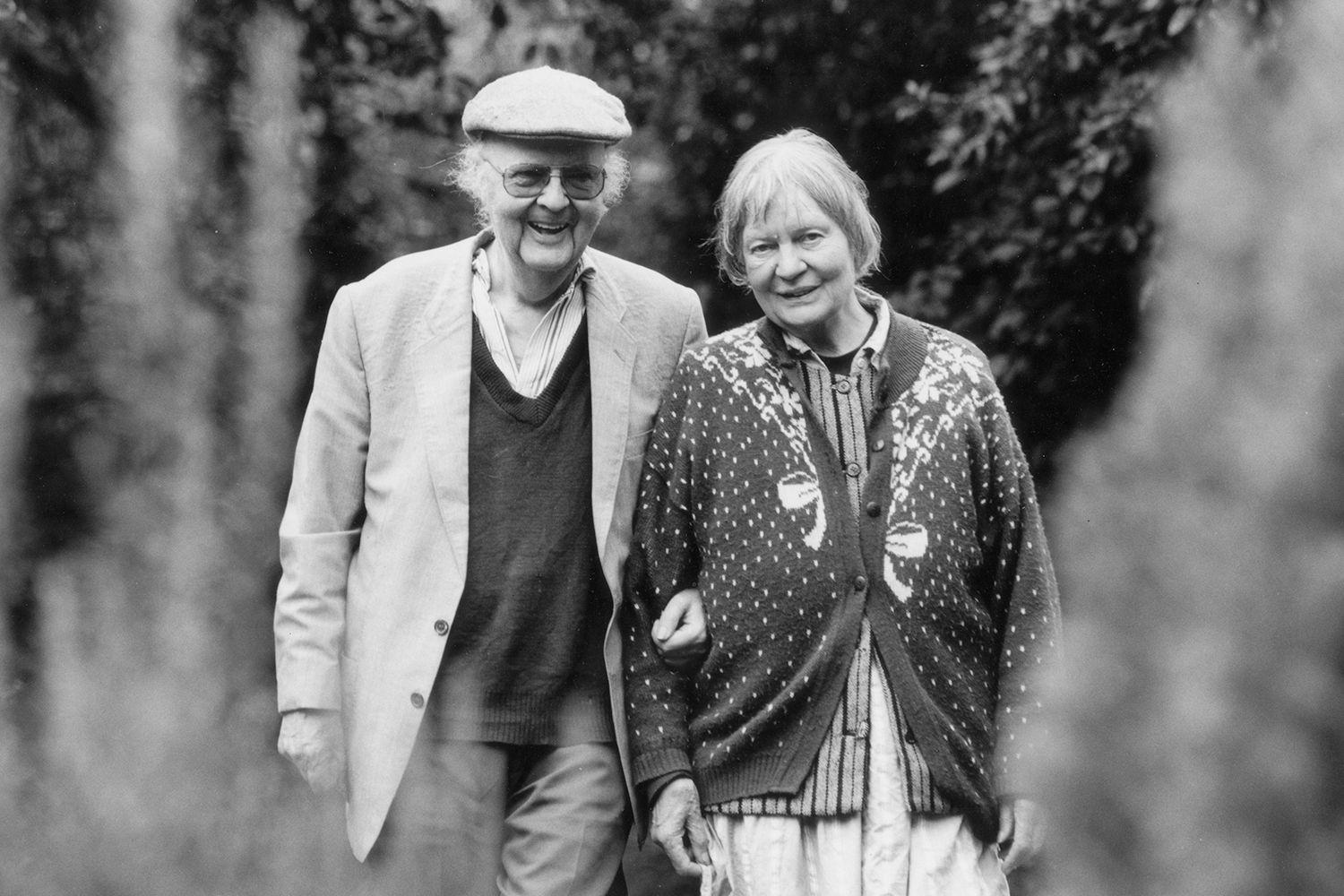Iris Murdoch: Oxford Encounters
Recently I have mentioned Iris Murdoch to Oxford friends and neighbours, mostly people around my age, and found that many had had a memorable encounter with her, as I had. Several of my seven-member reading group had met her – at a talk, at a wedding, in the street. The wedding was at St Anthony’s College and my friend comments that she was quietly observant and thoughtful. Another seeing her in Summertown’s Boots the chemist, said, ‘Oh, you’re Iris Murdoch!’ and Iris replied, ‘Yes, are you a fan?’ After Julia confirmed that she was, both went on with their shopping.
My next-door neighbour saw Iris and John swimming naked in the Thames; my Dutch friend was at a party at Cedar Lodge – her husband was a student. Her recollection was that John and Iris were friendly and more participative than other tutors.
My own meeting was at Rewley House, the Oxford Centre for Continuing Education, where she was part of a small panel on, I think, the English novel. But I remember someone asking about the Troubles in Ireland and Iris being upset, almost tearful. I did mumble something about the novels in the coffee break – what I remember is a sense of her absolute lack of arrogance, of awareness of how special she was.
William Fiennes, a friend and neighbour, remembers Iris being brought to tea with his mother by Penny Levy at their home, Broughton Castle. She was already suffering from Alzheimer’s but he said that she was cheerful and enjoying herself. I found myself thinking what the earlier Iris would have made of that extraordinary setting and its occupants.
Others have recollections that I thought worth quoting:
Jonathan owned Sylvester’s, one of those hard to define shops – interior design, desirable gifts – in Little Clarendon Street, known as Little Trendy Street in the '70s and '80s. He told me that Iris would often come in and look amiably around, though not with the intention of buying anything, and they would ‘chat about this and that’. He knew John Bayley from having attended public seminars he gave together with Lord David Cecil. I asked what they did chat about:
‘Probably about knowing her husband! Then onto English Lit. themes perhaps, but keeping off any talk about her novels, which I didn’t ever acquire a liking for! She had a curiously effacing way of being, I found, as though she thought she didn’t really have an excuse for being where she was. Very odd considering her reputation and undoubted excellence either as a novelist or academic. She obviously understood those among whom she found herself but it seemed to come about by intuition not scientific-like observation. Perhaps by some sheer feat of imagination?’
Julia, a former Probation colleague of mine, now a therapist, writes:
She and John were our next-door neighbours when I was 7-12. We lived in Southmoor Road with a garden going to the canal. She never spoke to me but I used to go into her garden to borrow a lawn mower – I doubt it belonged to her, but to the other tenants. I was rather scared I’d meet her but never did. My mother was very scornful about Iris having a rowing boat – nobody else did in those days.
I think my mother was quite disapproving of her. So as an 8 year-old, I knew there was something about her which I had to be careful about. It was probably her intellectual reputation which upset my mother, who was no academic and, although pretty bohemian herself, disapproved as Iris was so wild and messy. My father never passed any comment.
[Julia is the widow of the diplomat Oliver Miles and so lived abroad until his retirement. The Ambassador's Wife's Tale is her fascinating account of a sometimes alarming life.]
Then years later, when we moved into Belbroughton Road and they lived round the corner in Charlbury Road, I used to see John frantically searching for her. He used to find her swimming in the Cherwell.I have to say John Bayley was a saint and one of the nicest and most empathic men I have ever met.
Andrea is a senior administrator in Oxford’s History Department and is in my book group.
When I was in my second year (1978/9) doing English at St Catz I wrote a children’s novel and showed it to my wonderful tutor, Dennis Horgan. He in turn showed it to John Bayley and Iris Murdoch and she very kindly offered to write a critique of it that could be shown to a prospective publisher. It was about a boy whose grandmother, a scientist, managed to hatch a pair of dragon’s eggs and attempt to study the resulting dragons. They were extremely dangerous, though not (crucially) evil. This was years before Jurassic Park. Iris Murdoch produced a detailed reader’s report that said very nice things about my story in addition to pointing out its weaknesses and suggesting improvements. I do so wish I still had this report, but it got lost somewhere among my many changes of address. It was a tremendously kind thing to do. (The story was never published!)
The last time I saw her was at a party in college. This was in 1996: her dementia was fairly advanced by this time; she could not converse but seemed cheerful and contented. We undergraduates had all been given 'The Sovereignty of Good over Other Concepts' to read before coming up, an exquisitely precise philosophical argument.
What has emerged from most of these memories is how vivid they are and how receptive she was to meeting with ‘ordinary’ people, not necessarily in her academic or literary spheres.
If you met Iris in any capacity, and would like to share your story (however brief) do send it to the Society at ims@chi.ac.uk

